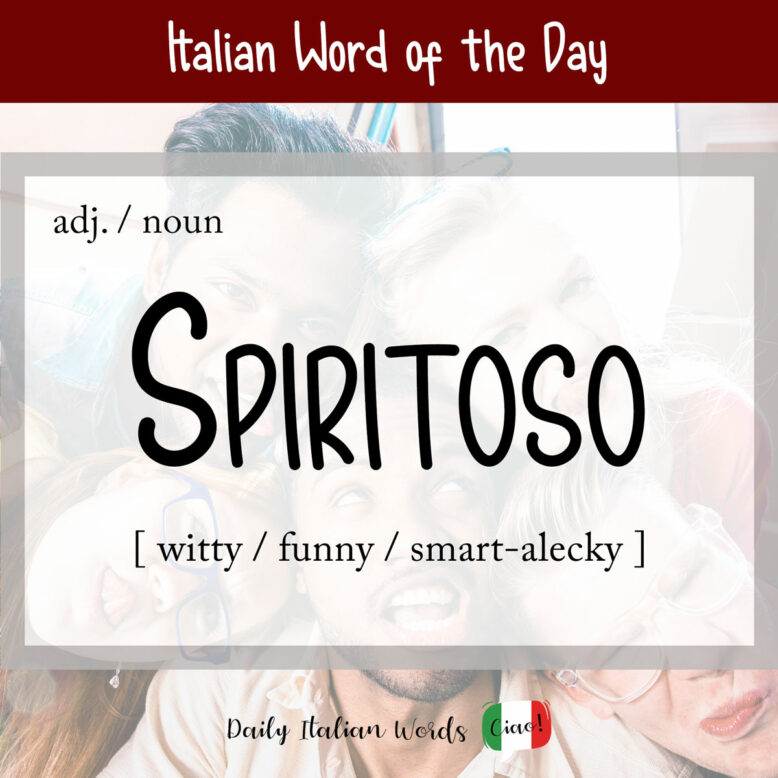There are two possible interpretations for the adjective spiritoso (feminine: spiritosa, plural: spiritosi / spiritose) in Italian.
spiritoso

On one hand, it characterises a witty, clever, or funny person, or something, such as a joke (battuta) or response (risposta), that is witty or entertaining.
Daniele fa sempre battute spiritose.
Daniele always makes witty jokes.
On the flip side, it describes an individual with a tasteless sense of humour who makes jokes at inappropriate times. When the meaning is pejorative, you’ll often hear spiritoso (and the feminine equivalent spiritosa) used as a noun rather than an adjective. Some common translations include smart-aleck, wise guy, and smarty-pants.
lo spiritoso = the smart-aleck (m)
la spiritosa = the smart-aleck (f)
gli spiritosi = the smart-alecks (m)
le spiritose = the smart-alecks (f)
Dai, non fare lo spiritoso. Non sei divertente.
Come on, don’t be a smart-aleck. You’re not funny.

Spiritoso is derived from the noun spirito (spirit), which, in turn, comes from the Latin spiritus. In English, spirit and in Italian, spirito can also refer to a strongly distilled alcoholic drink. For this reason, spiritoso can also mean alcoholic or spirituous, but keep in mind that this usage is rare. Italians tend to prefer the term superalcolico (hard liquor) to describe this kind of drink.
Le cosiddette “bevande spiritose” vengono prodotte in tutto il mondo.
So-called “spirit drinks” are produced all over the world.
Finally, according to Treccani, spiritoso can describe a piece of music meant to be played in a spirited manner.
Heather Broster is a graduate with honours in linguistics from the University of Western Ontario. She is an aspiring polyglot, proficient in English and Italian, as well as Japanese, Welsh, and French to varying degrees of fluency. Originally from Toronto, Heather has resided in various countries, notably Italy for a period of six years. Her primary focus lies in the fields of language acquisition, education, and bilingual instruction.


